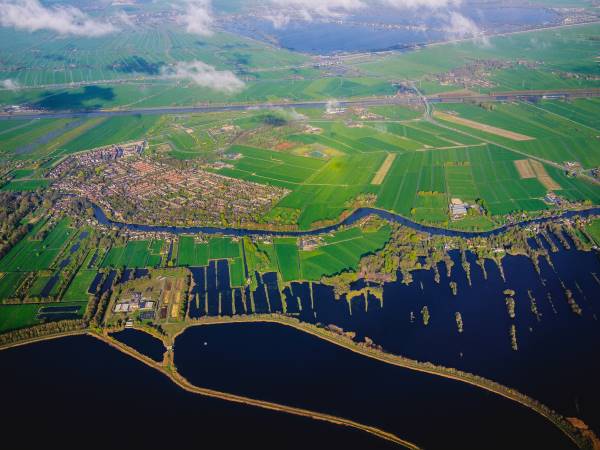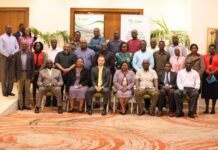The agriculture sector is a major contributor to water pollution. There’s no universally guaranteed way to reduce the problem. However, following numerous best practices can mitigate the agricultural runoff that often contaminates water.
Make Connected Irrigation Sensors Affordable and Readily Available
Many of today’s agriculture professionals increasingly use smart sensors to tell them about everything from expected yields to potential pest infestations. Excessive irrigation is one of the agriculture-associated causes of water pollution. That’s why farmers must be careful to water crops only when necessary. Of course, an area can become too moist through natural means as well, like too much rainfall.
Connected sensors can play significant roles in helping agriculture professionals understand when to water their crops and how much moisture they need. One study involved providing farmers in sub-Saharan Africa with an automated irrigation system. The results indicated this approach enabled water savings of 30% while enhancing the soil’s protection from erosion.
Elsewhere, in Sierra Leone, officials there took an important step in determining the nation’s most polluted rivers by submitting a water quality report to the United Nations for the first time. The outcomes showed that more than half of the areas with rivers did not meet national quality standards. Agriculture is not the only factor behind those results, but it’s undoubtedly one of them.
Whether monitoring occurs on individual farms or at the national level, the associated data can pinpoint the areas most in need of improvement. Then, it’s easier to feel more confident about taking action.
Educate Farmers and Encourage the Pursuit of New Methods
Agricultural runoff is more likely to happen due to numerous factors, including human-controlled ones. For example, the root saturation caused by the overapplication of fertilizers makes those products move to less-saturated areas.
Farmers can also contribute to agricultural runoff by spreading fertilizers at the wrong times. Putting it on frozen or partially thawed ground interferes with adequate soil penetration.
One relatively simple way to combat water pollution is to switch to drip irrigation and distribute water directly to roots. However, not all plants thrive with this watering method. Plus, when farmers’ land features clay-based soil, the water trickle rate must be slow enough to enable absorption.
Another possibility is to urge farmers to plant cover crops to reduce water pollution. Researchers conducted a global meta-analysis of that approach to investigate the results. They showed that cover crops caused a 69% reduction in nitrate leaching overall. Some crop families got outcomes nearly 10% better than that, too.
However, many people initially hesitate to do things differently. That’s especially true when their livelihoods depend on it, as is often the case with farmers. Providing them with education and other support is vital for helping them switch to methods that are less likely to cause water pollution.
Create Buffer Zones
Researchers believe climate change will worsen water scarcity in 84% of croplands. That’s a particularly worrisome statistic for Africa. Statistics indicate 1 in 3 people living there faces water scarcity. Sometimes, poor infrastructure is a primary cause of that shortfall. However, it can also happen when pollution makes water unsafe to drink. One nine-month study of water sources in the U.S. found many samples contained dangerous levels of chemicals.
Making changes in the agricultural sector can reduce the likelihood of water contamination so that more people can access, use, and enjoy water. Researchers from Oregon State University reviewed more than 40 case studies about agriculture’s impact on water quality. One of their takeaways was that better buffer zones would protect water from agricultural pollution.
However, the researchers clarified that action must partially occur at the legislative level. Additionally, they said things like better herding and fencing to keep cattle out of streams would also help. Another suggestion was to pay farmers to keep land out of use if it was too close to bodies of water.
Conquering Water Pollution Is Essential Now and Later
There’s no easy or immediate solution to address water pollution originating from the agricultural sector or otherwise. Being aware of the problem is the first step. From there, people can explore solutions like those highlighted here to see if they could collectively or individually help farmers and the industry get the desired results.

Jane is an agriculture and environmental journalist and the founder and editor-in-chief of Environment.co, where she covers sustainability and eco-friendly living.









